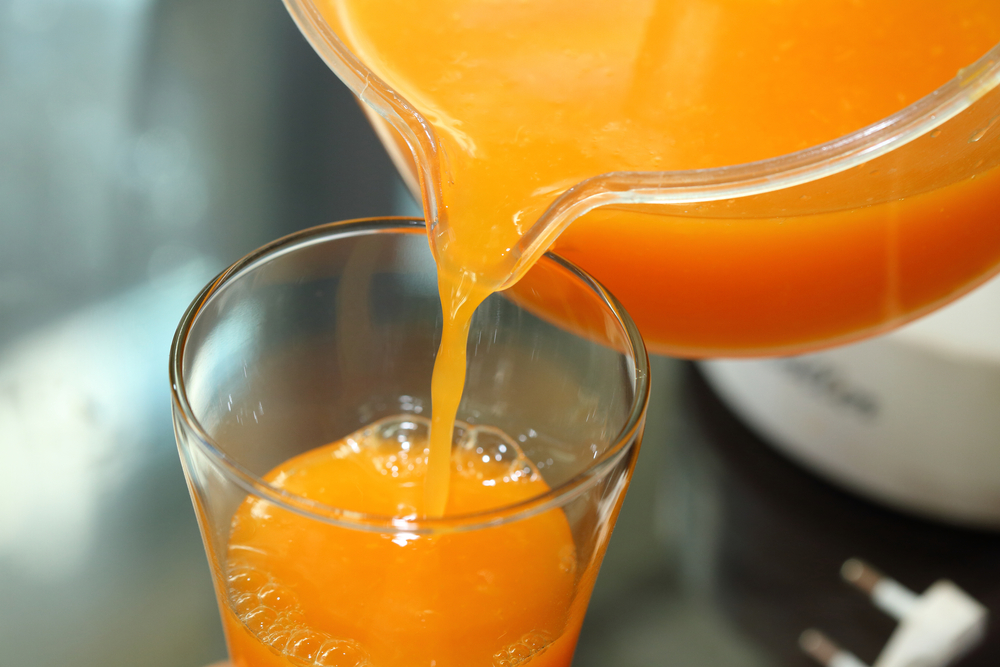Experts Urge You to Think Twice.
Others are reading now
Juice diets have been gaining popularity as a magical method for weight loss and detox.
However, experts clearly state that research does not support the beneficial effects of such treatments on the body.
On the contrary — a detox can not only fail to guarantee weight loss but can also prove to be particularly dangerous.
Expectations vs. Reality
Also read
-
Drinking only juices for a week, feeling cleansed, and losing a few kilograms — many associate significant hopes with juice detoxes.
-
Manufacturers promise spectacular effects, toxin elimination, and health improvement. But does the desired effect truly last? And is a juice diet healthy or merely risky?
Practical Aspects of a Juice Diet
-
Preparation: About a week before starting, you should eliminate alcohol, nicotine, and coffee. A light diet is also important in the days leading up to the detox. Some even cleanse their intestines beforehand, for example, with laxatives.
-
The Detox: Depending on the regimen, for three to seven days, every meal is replaced with 200 to 250 ml of fruit or vegetable juice. During this period, you can only drink water, unsweetened tea, and vegetable broth.
Expected Outcomes and Side Effects
-
The desired effect of a cleansing regimen includes better well-being and rapid weight loss. However, according to Niklas Schwarz, a nutrition expert and fitness trainer, detoxes can also bring headaches and apathy. Headaches may be due to the withdrawal of coffee and other caffeinated beverages if they were consumed regularly.
-
Experts warn that detox products often contain merely dehydrating ingredients (e.g., nettle). Prolonged use of such products in large doses can lead to increased excretion of certain minerals and weaken the effect of medications.
Scientific Evidence and Health Risks
-
The German Nutrition Society states that the effectiveness of juice fasting has not been scientifically proven. No serious human studies have been conducted in this area so far. The extent to which such regimens stimulate metabolism is also doubtful.
-
The rapid weight loss is likely due to consuming fewer calories. However, given the short duration of the diet — from three to seven days — it can be assumed that weight loss is mainly due to water loss, not fat loss.
-
After ending the diet, the yo-yo effect may occur, especially if an unhealthy diet was followed before and continues afterwards. Weight loss will then be short-lived.
Dangerous Consequences of Detox
-
A review in “Current Gastroenterology Reports” in 2017 and “Journal of Human Nutrition and Dietetics” in 2014 highlights that while the detox industry is booming, there is very little clinical research supporting such diets.
-
Some studies have shown that juice diets may improve liver detoxification. However, these results have limited reliability due to flawed methods and small samples.
-
Niklas Schwarz points out that while dieticians recommend consuming five servings of fruits or vegetables a day, this only includes one serving of juice.
-
Juices may lead to excessive consumption of fructose, which can negatively affect health — especially the liver. A strict juice diet may lead to an oversupply of certain vitamins in the body and a deficiency in proteins and fats. Prolonged detox can lead to malnutrition, which is dangerous for health.
-
Insufficient calorie intake often leads directly to hypoglycemia, as the body is not supplied with enough energy. Symptoms include fainting, weakness, dehydration, headaches, and hunger.
The Body Can Manage Without Juices
-
If a juice diet includes laxatives or other methods of stimulating the intestines, the body will excrete too many nutrients, leading to dehydration and electrolyte imbalance.
-
Detox becomes particularly dangerous when it causes eating disorders.
-
The regimen may affect our relationship with food. A study analyzing the eating habits of school-aged children showed that an obsessive interest in health foods, such as juices, and avoiding food considered unhealthy leads to orthorexia — an addiction to healthy eating.
-
Additionally, a pilot study indicated a connection between juice diets and bulimia.
“In my view, juice cleansing is purely a way to make money. The goal is for consumers to want to lose weight quickly and do something ‘especially good’ for their health. But the body perfectly manages toxin removal, having two kidneys and a liver that break down harmful substances around the clock.
In my opinion, the only acceptable reason for a juice detox is a ‘reset’ of one’s dietary habits: if you tend to emotionally snack and want to reach a ‘zero point’ to gradually retrain intuitive behaviors. Juice cleansing should only be conducted after consulting a doctor, especially if you are taking medications.”
Source: Wiadomosci.


